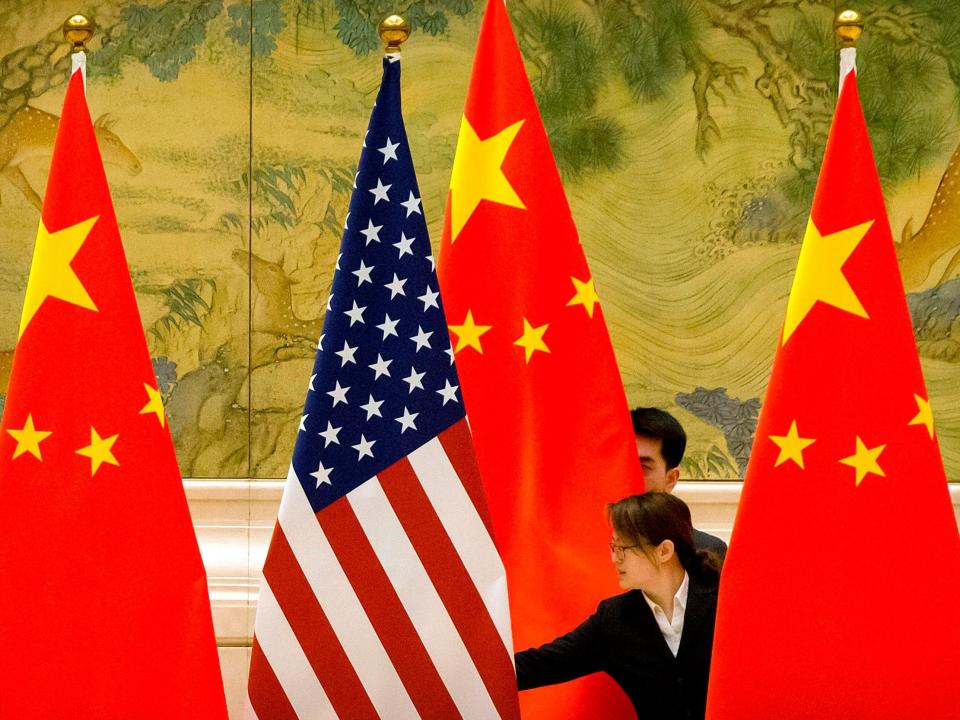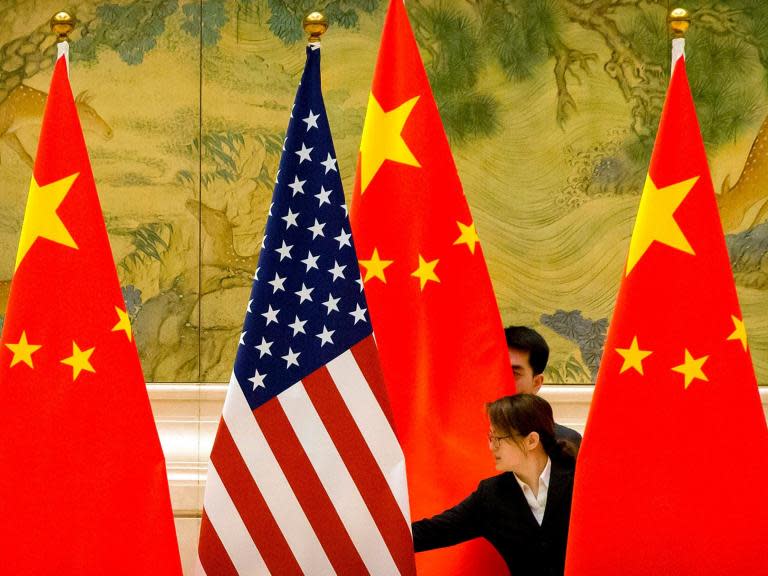US and China trade talks to continue next week as they fail to reach agreement
The US and China are set to resume trade talks in Washington next week, after the latest round of discussions ended in Beijing with no resolution achieved.
The two nations have been trying to reach a deal before the current tariff truce comes to an end on 1 March.
The truce was reached at the G20 summit in Buenos Aires last year, with Donald Trump agreeing to pause plans to raise tariffs on $200bn (£155bn) worth of Chinese goods, including electronics and assorted foods, following months of escalating tensions.
China’s state news agency Xinhua said on Friday that both countries had reached a consensus in principle on some key issues over the course of this week, but did not provide further detail.
“Next week, both sides will meet again in Washington. I hope you will continue efforts to advance reaching a mutually beneficial, win-win agreement,” said Chinese president Xi Jinping.
He added that China was willing to take a “cooperative approach” to settling bilateral trade frictions.
White House press secretary Sarah Huckabee Sanders said that while progress had been made during the talks this week, “much work remains”.
“During the talks, the US delegation focused on structural issues, including forced technology transfer, intellectual property rights, cyber theft, agriculture, services, non-tariff barriers and currency,” Ms Sanders said.
“The two sides also discussed China’s purchases of US goods and services intended to reduce the US’ large and persistent bilateral trade deficit with China.”
When the talks began on Monday, experts warned of the risk that Mr Trump posed to any potential deal.
Naeem Aslam, chief market analyst at Think Markets, said: “Betting on Trump is not something which many investors feel comfortable with and it is something you will have to keep in mind as a trader.”
However, US markets were up on Friday after the talks were extended into next week, with the Dow Jones adding 300 points to hit a two-month high.
Connor Campbell, financial analyst at Spreadex, said the decision to continue negotiations “suggests that both sides are serious about reaching a deal before the ceasefire comes to a close at the start of March, something that is clearly far more important to investors than the domestic chaos potentially caused by Trump’s insistence on declaring a national emergency”.
The president has declared a national emergency in the US in a bid to access funding for a border wall.
Additional reporting by newswires


